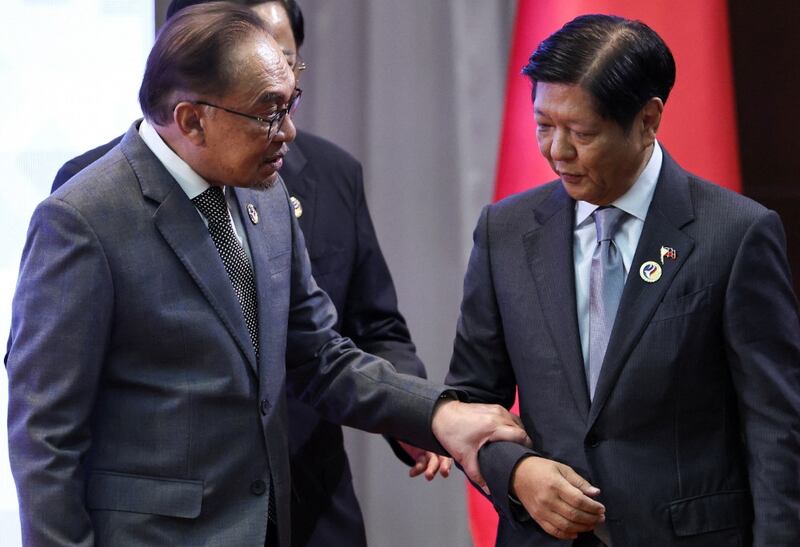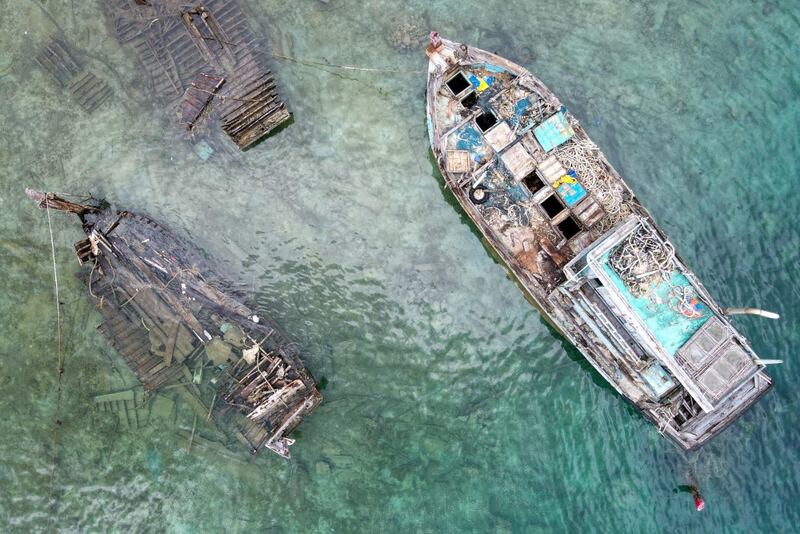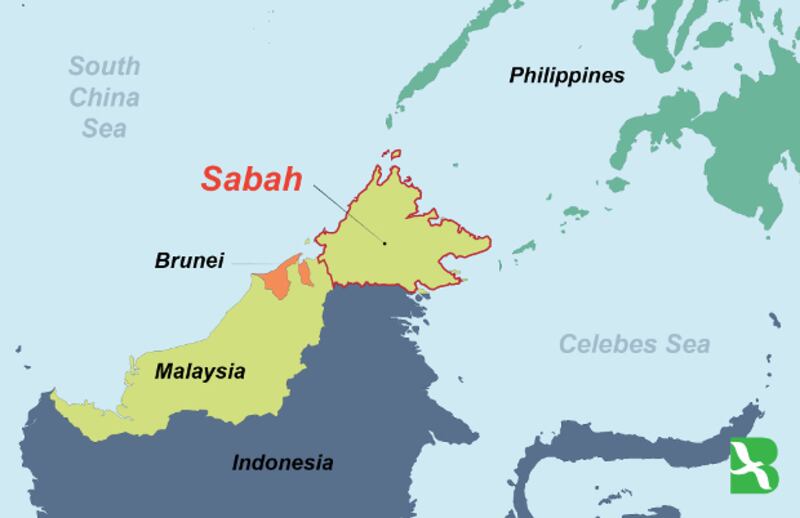Malaysia said it is protesting two new Philippine maritime laws that it contends encroach on its South China Sea boundaries, in a move that comes amid heightened regional tension over Beijing’s increasing assertiveness about its expansive claims.
In October, Malaysia lodged a similar complaint against Vietnam about Hanoi's expansion on a South China Sea reef both countries claim, Reuters news agency reported last week.
One security analyst said that despite regional tension, there is little risk of confrontation between Malaysia and the Philippines, or Vietnam, while a regional observer said that Manila and Hanoi were the transgressors in both cases.
Malaysian Deputy Foreign Minister Mohamad Alamin told his country's parliament on Thursday that the new Philippine laws encroach on Malaysia's oil-rich state of Sabah, which borders the South China Sea.
“We’ve finalized and reviewed key issues in our protest note, which we’ll send today [Thursday] to affirm our commitment to protecting Sabah’s sovereignty and rights,” Alamin said, referring to the state that is claimed by both Malaysia and the Philippines.
Manila on Nov. 8 enacted the Philippine Maritime Zones Act and Archipelagic Sea Lanes Act, which Alamin said extend into Malaysia’s boundaries mapped out in 1979, which Kuala Lumpur regards as internationally recognized.
The Philippines had said the laws were intended to declare Manila’s maritime claims in accordance with the United Nations Convention on the Law of the Sea (UNCLOS) and restrict foreign ships and aircraft to designated lanes.
Philippine officials did not immediately respond to Alamin’s comments.

Located off the southwestern region of the Philippines, Sabah has long been a thorny issue between the neighboring countries.
In September 2020, the two countries took their dispute over who owns Sabah to the United Nations. The dispute remains unresolved.
Separately, in June 2023, a Paris court upheld Malaysia's challenge to a U.S. $15 billion arbitration award to purported heirs of an erstwhile ruler of the former Sultanate of Sulu. Part of that former sultanate is in Sabah.
An arbitration court in Paris had in February 2022 ordered Malaysia to pay that amount to settle a colonial-era land deal.
The former Sultanate of Sulu was situated in a small archipelago in the far southern Philippines.
RELATED STORIES
[ Vietnam expands strategic capabilities in South China SeaOpens in new window ]
[ Vietnam builds airstrip on reclaimed island in South China SeaOpens in new window ]
[ East Asia fails to adopt South China Sea statement amid finger pointingOpens in new window ]
An analyst at the non-profit Yokosuka Council on Asia-Pacific Studies said Malaysia has had to deal with the Philippines’ expansion efforts in the South China Sea.
“From the point of view of Malaysia, the Philippines is the troublemaker-in-chief,” Benjamin Blandin, a network coordinator at the council, told BenarNews.
He said the Philippines destroyed Malaysian sovereignty markers in the Spratlys, a South China Sea island chain, in the 1970s and 1980s and later occupied Commodore Reef within the Malaysian exclusive economic zone.
A country’s EEZs extends up to 200 nautical miles from its coastline.
“So based on this bilateral ‘history,’ Malaysia can only interpret negatively any further move of the Philippines, at least as long as the Sabah case is not solved,” Blandin said.
He added that Vietnam had also destroyed markers at two maritime features in Malaysia’s EEZ before occupying them.

Another analyst, Shahriman Lockman at the Institute of Strategic and International Studies Malaysia, told BenarNews he blamed Vietnam’s actions.
“Recent reports of Malaysia’s protest note to Vietnam, if accurate, reflect a growing impatience with Vietnam’s recalcitrance in the South China Sea and reluctance to engage in constructive discussions – behavior that deserves as much attention as China’s,” said Lockman, a senior analyst at the institute.
“Even so, I don’t anticipate any major escalation as long as Vietnam tries to restrain its fishermen who have a tendency to intrude into foreign EEZs, not only in Southeast Asia but across the Asia Pacific.”
Similarly, "unless Manila actively pursues its legal claims, I don’t see a high risk of confrontation with Malaysia," Lockman said.
“This [complaint] is just a routine aspect of diplomatic relations – a typical day at the office for our diplomats. ... As countries build the legal foundations for their territorial and jurisdictional claims, it’s inevitable that overlaps are going to be reiterated.”

Overlapping claims
Malaysia, the Philippines, Vietnam, China, Brunei and Indonesia, as well as Taiwan, hold overlapping claims in the South China Sea and its islands and reefs.
Beijing claims nearly all of the sea as its own based on so-called historic rights, which were invalidated in a 2016 arbitration ruling by the international court in The Hague,
Since the Philippines enacted its two new laws, Beijing and Manila have launched protests against each other over contested South China Sea claims.
Following Beijing’s protest, Philippine President Ferdinand Marcos Jr. on Thursday said his government would maintain its stance on its South China Sea territories, the state-run Philippine News Agency reported.
“[T]hey will continue to protect what they define as their sovereign territory,” he told journalists.
“Of course, we do not agree with their definition of sovereign territory.”
